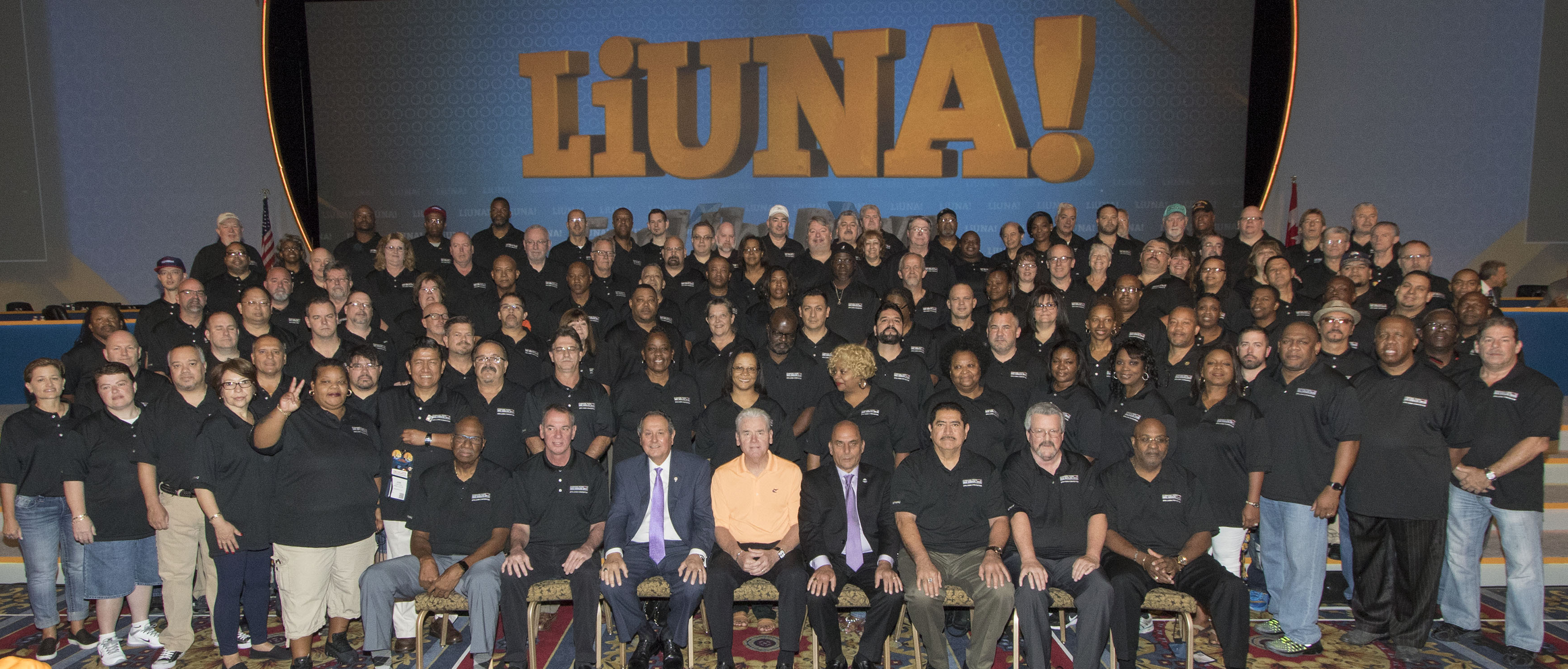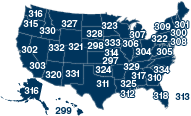 More than one hundred and thirty Mail Handlers serving as delegates to the International Convention of the Laborers International Union of North America (LIUNA) convened in Las Vegas, Nevada during the week from September 19 to 24. As a member of the LIUNA General Executive Board, NPMHU National President Paul Hogrogian had the honor of addressing the hundreds of delegates and leaders in attendance. A modified version of that address is below:
More than one hundred and thirty Mail Handlers serving as delegates to the International Convention of the Laborers International Union of North America (LIUNA) convened in Las Vegas, Nevada during the week from September 19 to 24. As a member of the LIUNA General Executive Board, NPMHU National President Paul Hogrogian had the honor of addressing the hundreds of delegates and leaders in attendance. A modified version of that address is below:
Good morning, brothers and sisters. I’m Paul Hogrogian, President of the National Postal Mail Handlers Union, a Division of LIUNA. It is my distinct honor and privilege to be able to address my brother and sister LIUNA delegates.
Let me start with a brief report on the current state of the National Postal Mail Handlers Union. I want to thank General President Terry O’Sullivan and General Secretary-Treasurer Armand Sabitoni for their continued support. I also want to recognize some of my fellow Mail Handlers in the audience. Our National Secretary-Treasurer Mark Gardner, Regional Vice Presidents John Gibson, Lawrence Sapp, and David Wilkin, as well as retiring NPMHU Vice Presidents Rudy Santos and Jefferson C. Peppers III.
We are extremely proud to be associated with LIUNA. The relationship between our two great Unions has never been stronger, your battles are our battles and our battles are yours. That’s the way it’s supposed to be and that’s the way it works.
My Union, the NPMHU represents approximately 44,000 Mail Handlers in all 50 states, Puerto Rico and the Virgin Islands. Approximately 90 percent of Mail Handlers voluntarily join our Union although not required to do so by law in an open shop environment.
Now what is a Mail Handler? A Mail Handler works outside of public view and inside large mail processing centers, usually in the larger metropolitan areas of the United States. We are the hidden heroes of the Postal Service. Mail Handlers are the first ones to handle the mail when it enters a processing center and the last ones to handle it when it leaves. We do the heavy lifting and the dirty work in mail processing facilities. Quite simply, we are the laborers of the Postal Service, which is one of the reasons why we affiliated with LIUNA in 1968.
The Postal Service is an independent establishment in the executive branch of the United States Government. But the Postal Service receives no tax dollars and is funded solely by the sale of postage and other postal products. In 2006, the Republican controlled Congress enacted a postal reform bill signed into law by President George W. Bush that would eventually put the Postal Service in the precarious financial situation that it is in today.
That law required the Postal Service to fund its future retirees’ health benefits for the next 75 years over a 10-year period. No other government agency and no other private corporation are required to pre-fund their future retiree health benefits in such a way.
At first, this requirement was not crippling. Then came the Great Recession of 2008, along with the increased diversion of mail to digital formats and the internet. Mail volume, especially first-class letter mail, declined drastically. Eventually, the Postal Service began reporting annual deficits of more than $1 billion. Yet 90 percent of the losses are due to the onerous prefunding requirement that I just described. Absent this mandated payment, the Postal Service would actually have realized an operating surplus for the past 3 years.
How did the Postal Service react to this deficit? It cut service, cut costs, cut the workforce, and screwed employees. It began closing and consolidating mail processing plants throughout the country. Thousands of well-paying, middle class jobs were eliminated. We lost approximately 25 percent of our workforce, accomplished through attrition. The Postal Service is still proposing to close 82 more processing centers.
Besides closing processing plants, the Postal Service began subcontracting certain postal operations to private companies who employed low-paying, untrained, non-union work forces. This will only get worse if there remains a Republican majority in Congress, and a Republican like Donald Trump in the White House.
The Postal Service has also been trying to cut the current 6-day per week delivery schedule to 5 days per week. This results in slower mail delivery, and therefore less people using the mail and less revenue coming in. In effect, implementation of this plan would cause a classic death spiral for the Postal Service.
The four major Postal Unions went to our friends in Congress to try to stop closings and subcontracting. We were not successful in getting any meaningful postal reform passed. But what we found was that both the Postal Service and the major mailing companies had the political clout to block any postal legislation, and what we needed to do was form a coalition to draft a consensus coalition postal bill.
So we formed that coalition, and have been meeting for over a year to draft such a bill. The Postal Service wanted relief from its retiree health benefit prefunding requirement, the mailers wanted to stabilize postal rates, and the Unions wanted to stop plant closings and maintain 6-day delivery. We reached an agreement that accomplished these goals. There are currently postal reform bills pending in both houses of Congress that contain many of the elements that the coalition proposed. Passage of this bill is by no means certain, but it is our best chance.
At the same time, we are in the middle of an election that may be the most important of our lifetime. All three branches of government are in play. The NPMHU at our Convention last month voted overwhelmingly to endorse Hillary Clinton for President, and as far as the Senate and Congressional races, we must support those candidates who support us.
On top of all of this, we are in the process of negotiating a new National Agreement with our employer, the Postal Service. Our bargaining priorities were obtaining fair and just general wage increases, retaining our current cost of living provision, retaining our current no layoff clause, minimizing future subcontracting, and returning subcontracted work to the Mail Handler craft.
Our current agreement expired on May 20th of this year. Although we were unable to reach agreement by that bargaining deadline, we made significant progress and therefore the parties agreed to extend bargaining. Many tentative agreements have been reached with the Postal Service to accomplish our key bargaining goals.
I am confident that the NPMHU will be able to reach agreement on a negotiated contract within the next few weeks. In fact, finalizing this agreement will be my priority when I return to Washington after this Convention. Any tentative agreement must be sent to our membership for ratification, and failure to reach a negotiated ratified agreement will result in the parties entering into a binding arbitration process.
Though we face many challenges, with the support of LIUNA we are not only ready to meet these challenges, but also ready to beat them. In case I haven’t said it yet, or may have given the wrong impression, the state of the Mail Handlers Union is excellent. Thank you so very much for allowing me to address this Convention and thank you for your continuing support.
